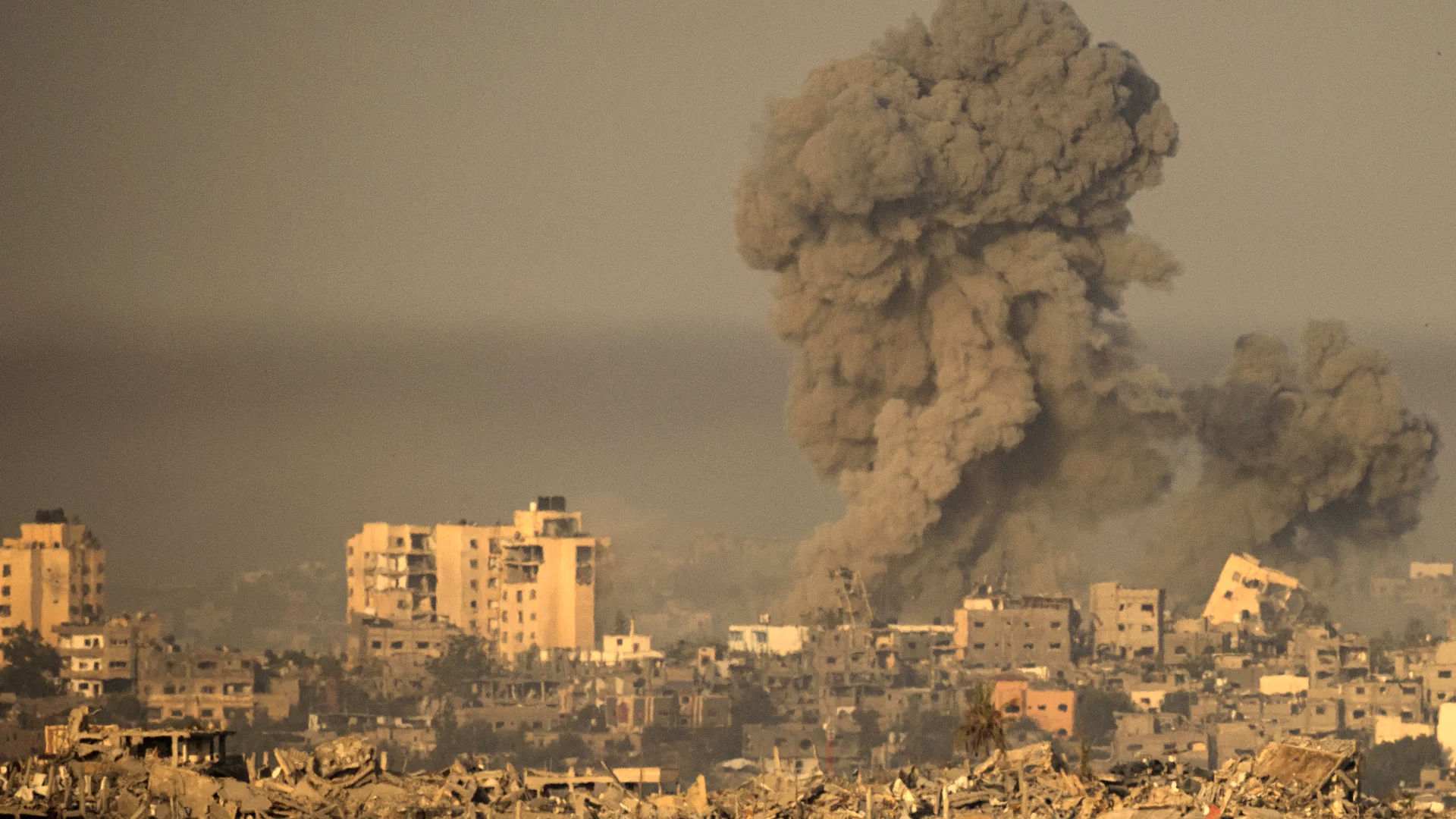At least 10 people, including children, were killed in Gaza on Sunday when a drone strike hit a school used as a shelter, according to local health workers cited by media. The Al-Nazla school in Saftawawy, on the outskirts of Jabaliya, was serving as a temporary refuge for people fleeing violence.
Eyewitness Saleh Al-Aswad from Jabaliya told that his son-in-law is receiving treatment for injuries sustained in the attack. Al-Aswad recounted how a man making bread for his children, believing they were in a safe place, was killed along with his daughter, Afnan, and son, Mohamed. This incident comes as United Nations agencies warn of a worsening humanitarian crisis in Gaza.
The United Nations Office for the Coordination of Humanitarian Affairs (OCHA) highlighted the dire state of Gaza’s healthcare system in a statement shared on X. They reported that, as of Friday, 15 out of 36 hospitals in Gaza were only partially functional, with 21 hospitals out of service and six field hospitals operational. Existing hospitals are operating at over four times their capacity, struggling with severe shortages of fuel, medical supplies, and equipment.
Suhaib al-Homs, director of Kuwait Hospital in Rafah, released a video on WhatsApp urging the WHO to provide necessary fuel to keep the hospital operational. Al-Homs emphasized that Kuwait Hospital is the only functioning hospital in central Rafah accessible around the clock, as field hospitals in surrounding areas are hard to reach without ambulances.
“We are warning of the mounting health crisis as hospitals are going out of service and the collapse of the health sector,” Al-Homs said. “We will keep on working and the medical teams will keep doing their job. What’s happening now makes us more steadfast and adamant to fulfill our duty to serve our people.”
The UN aid agency also warned that displaced people in central Gaza are surviving on just 3 percent of the minimum daily water needs, with a rise in communicable diseases such as diarrhea and suspected Hepatitis A, particularly among children under five.
Earlier this week, the WHO head urged Israel to ease restrictions on aid entering Gaza, noting that the main route for vital medical supplies from Egypt had been cut off due to Israel’s military operation in southern Gaza, particularly in Rafah.
On Friday, the International Court of Justice (ICJ) ordered Israel to halt its operations in Rafah and withdraw from Gaza. The order came in response to a case brought by South Africa, accusing Israel of genocide and citing the “immense risk” to the Palestinian population.
“Israel must immediately halt its military offensive and any other action in the Rafah Governorate which may inflict on the Palestinian group in Gaza conditions of life that could bring about its physical destruction in whole or in part,” stated Judge Nawaf Salam, president of the ICJ.
This marks the third time this year that the ICJ has issued preliminary orders to address the humanitarian suffering in Gaza. While these orders are legally binding, the court lacks enforcement power.
The court noted that the humanitarian situation in Gaza has deteriorated “even further” since it last issued provisional measures in March, describing the current situation as “disastrous.”
READ MORE: Gaza Conflict Escalates: Leads To Civilian Casualties And Widespread Displacement

















